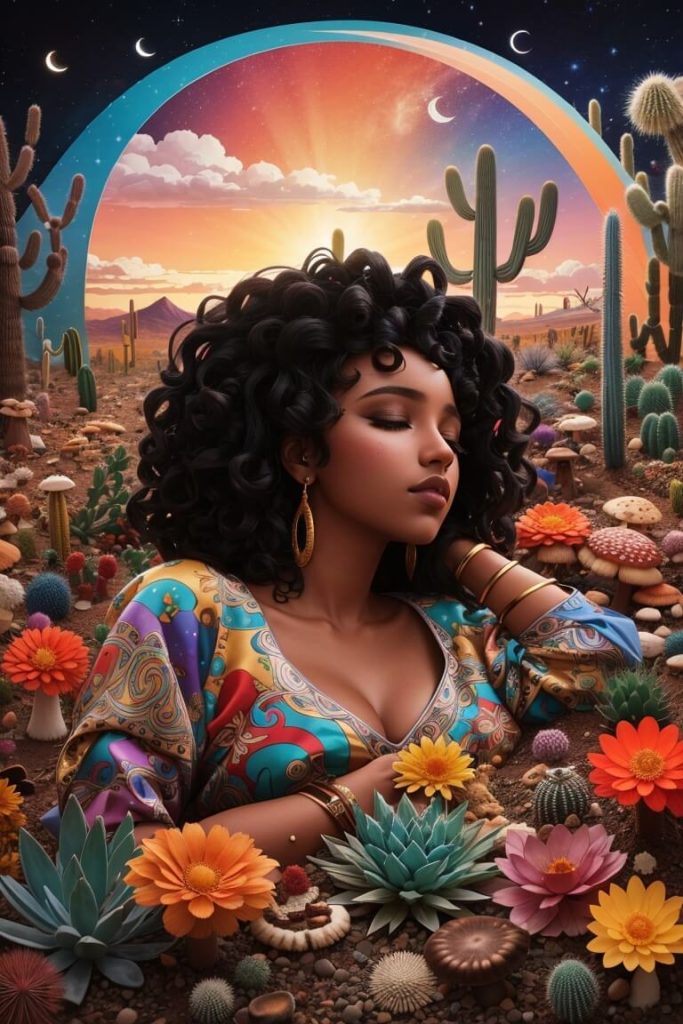Dream herbs offer a fascinating intersection of tradition, folklore, and modern exploration of the subconscious mind. Whether you’re a lucid dream enthusiast or just starting your dream journey, some of nature’s own could potentially offer a better view from your own personal observation deck.
These herbs, steeped in rich cultural histories, have a wide range of effects. Some might enhance REM sleep, some could enhance dream recall, while others may promote lucid dreaming.
Dream herbs are typically used with DoU’s active coaching offering, forming a holistic approach to exploring our subconscious minds. The plants, themselves, are believed to work through various mechanisms, such as increasing the production of certain hormones or neurotransmitters associated with sleep and dreaming.
While there is no definitive scientific evidence to prove the efficacy of dream herbs, numerous anecdotal reports suggest increased dream recall and lucid dreaming after using these herbs.
Mugwort is a well-known herb, used across many cultures for its supposed effects on dreams and sleep. It’s traditionally employed to prevent nightmares and is often reported to enhance dream vividness or recall by increasing the production of melatonin, a hormone associated with sleep. Valerian root is also widely known for its calming effects and is used by some to promote deep sleep and vivid dreams. Other revered plants such as Kava Kava and Passion Flower can also help calm the nervous system and equip your body better for a deeper sleep experience.
For stimulating more lucid, profound, or prophetic dreaming, we’ve looked across traditional cultures for the answers.
A favorite among them is Calea zacatechichi, often called “Bitter Grass.” Traditionally used by the Chontal people of Mexico, it is believed to intensify dreams, possibly encouraging lucid dreaming experiences by stimulating the pineal gland, which plays a vital role in dreaming.
South Africa’s dream roots Silene capensis, Silene undulata, and Xhosa are used to induce vivid and prophetic dreams through the production of acetylcholine, a neurotransmitter associated with memory and learning.
Similarly, Blue Lotus (Nymphaea caerulea), used in ancient Egyptian culture, was thought to have psychoactive properties, including promoting vivid dreams thanks to apomorphine and nuciferine that increase the levels of dopamine in the brain while promoting relaxation and sleep.
Then there’s Espand (Anastatica hierochuntica), an ancestral plant used by Zoroastrian priests of ancient Iran in rituals to see into the realm of souls and after death. A study published in the Journal of Ethnopharmacology found that, much like Blue Lotus, Espand extract increased the number of rapid eye movement (REM) sleep periods in rats. Another study published in the journal Dreaming found that participants who took Espand extract reported having more vivid and memorable dreams.
Intrigued? Below are a couple of well-tested options to get started. If you have a product you’d like us to test, contact us here.
Chock full of nervines such as organic Skullcap, Blue Lotus, Passionflower and Kava Kava, plus adaptogens Ashwagandha and Tulsi. This tea tops off the goodness with dream allies Blue Lotus Flower and Calea.
A wilder ride for boogier nights, this formula packs a punch with Blue Lotus Flower, Calea zacatechichi and Kanna, a newish mood-enhancing super herb on the scene. Mythical Herbs is so confident about their product, they offer a 30-night money back promise (no questions asked!).
As with any herbal regimen, it’s essential to conduct thorough research and consult a qualified herbalist before beginning. Also consider potential side effects and interactions with other substances or medications before taking any herbal formula.




